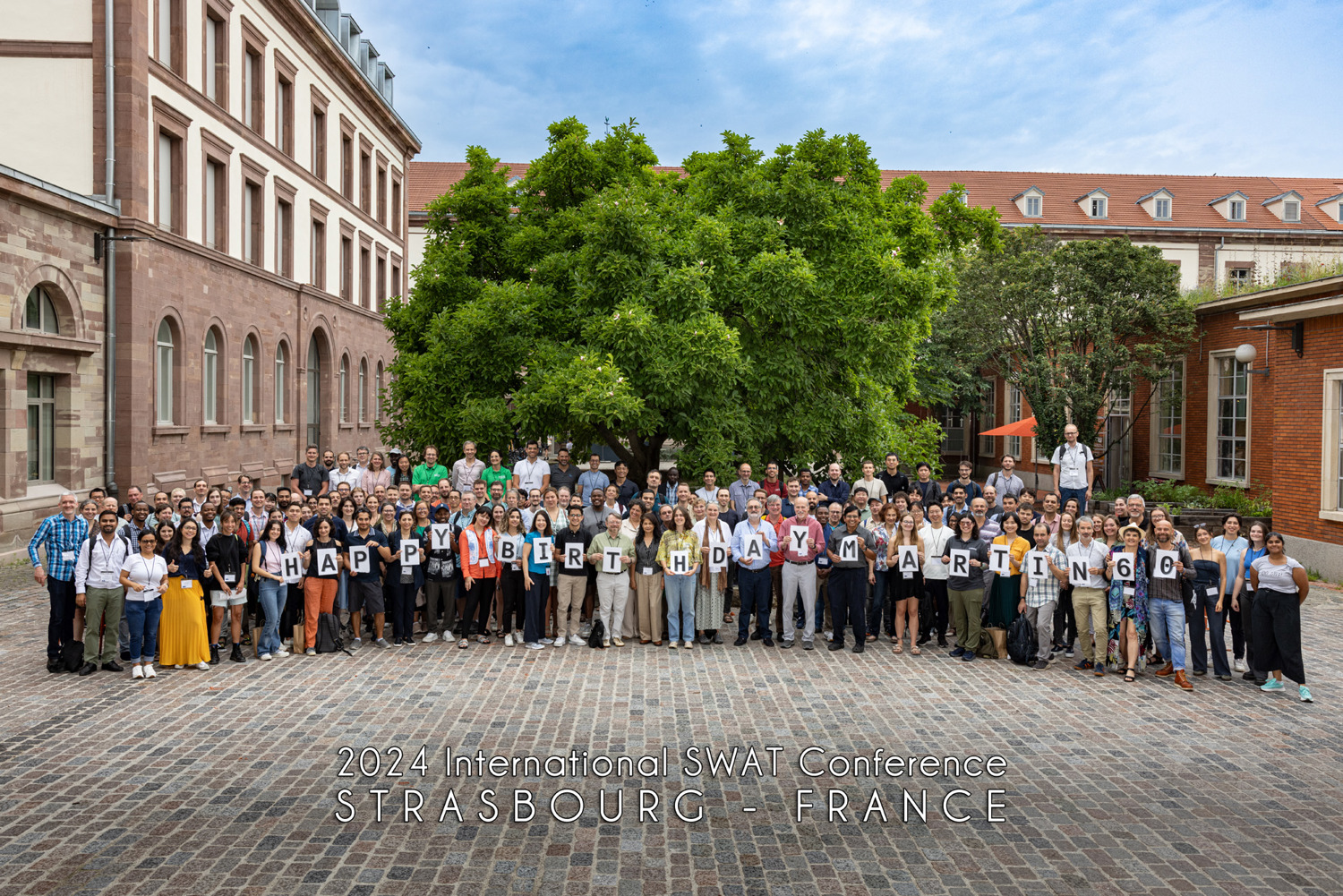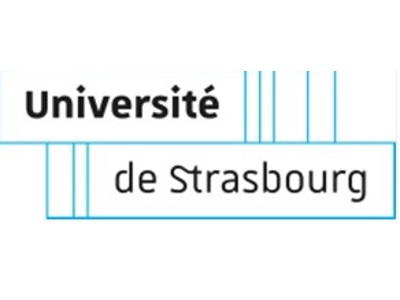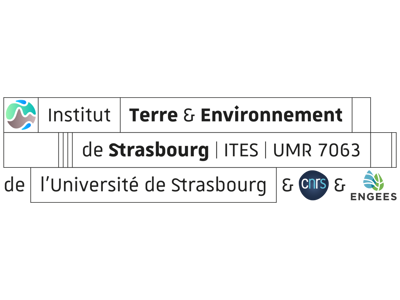July 2024 - Strasbourg, France
An International SWAT Conference & Workshops was held 8-12 July, 2024 at the National School of Water and Environment Engineering, Strasbourg University, France.
The 2024 International SWAT Conference was attended by 185 participants across 41 countries and 6 continents. A special thank you to the National School of Water and Environment Engineering along with Sylvain Payraudeau and the rest of the local organizing committee in Strasbourg for their countless hours and efforts to host the SWAT Community.
Certificates of participation and presentation were emailed 22 July. If you did not receive them, please check your junk/spam folders first, then contact Jaclyn if needed.

Local Organizing Committee
- Sylvain Payraudeau, ENGEES-ITES, Strasbourg, France
- Sabine Sauvage, CNRS, France
- José Miguel Sánchez-Pérez, CNRS, France
- Leccia-Phelpin Odile, INRAE, France
- Clément Fabre, Tour du Valat, France
- Youen Grusson, Toulouse University, France
- Céline Cordier, FERED, Strasbourg, France
International Organizing Committee
- Raghavan Srinivasan, Texas A&M University, USA
- Jeff Arnold, USDA-ARS, USA
- Jaclyn Tech, Texas A&M University, USA
Scientific Committee
Contact
For help with abstracts, registration, certificates, and website content, contact the international organizers at eco.web@tamu.edu.
Please add these email addresses to your contacts to ensure you receive our messages.
Subscribe to our SWAT conference mailing list to keep up to date with conference news and deadlines.


